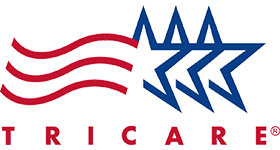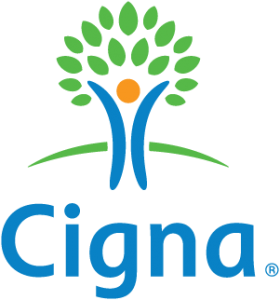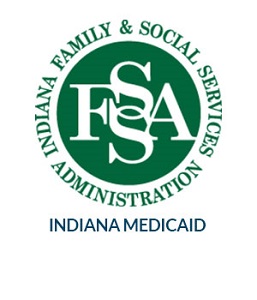
Montessori offers an approach that children with autism respond to positively. While all parents worry about their children’s early education and development, parents of children with Autism Spectrum Disorder (ASD) contend with an entirely different set of concerns. Parents of children with ASD tend to be less centered on their child learning advanced skills and more focused on their child cultivating communication skills in a supportive environment. The need for a more sensitive, child-centered approach than traditional classroom settings provide may be necessary for children on the autism spectrum. Children of all abilities respond positively to the Montessori approach.
Contact us to schedule an appointment.
Traditional classroom settings can be challenging for children with special needs and can even create further obstacles to their growth and development. At Modern and Mindful ABA Therapies, we know how to bring Montessori and autism together to achieve the best results possible for the children we serve.
At Modern and Mindful ABA Therapies, we bring a Montessori Method philosophy to all of the children who walk in our doors– and everyone benefits.
Why are Montessori and autism therapy a good fit?
Just as ABA therapy is child-led, the Montessori Method is very child-centered. Giving children the choice of what they want to work on removes the resistance that makes children with ASD challenging to work with. In addition to not forcing children to do things, there are other unique aspects to Montessori. Autism can make children more prone to repetitive behaviors that pose a problem in traditional classrooms.
In a Montessori setting, children can go back to learning materials as many times as they like. Being allowed to make their own choices and adhere to comfortable patterns builds confidence and increases independence. Even the best home-school curriculum for high functioning autism can be difficult to implement as it is a curriculum with a set sequence. Using Montessori for autism removes many of the obstacles to learning that traditional settings reinforce.
How does MMAT combine Montessori and autism therapy?
Modern and Mindful ABA Therapies provides autism therapy in a Montessori environment using Montessori Methods. Montessori provides a calm, nurturing environment rich with sensory learning tools– both things that appeal to children diagnosed with ASD. However, unlike Montessori, where children are in a group environment, all children at MMAT have constant one-on-one attention and supervision from their therapist. This gives them the freedom and confidence to interact in a group if they choose, with the safety of a trusted adult close by.
For children on the autism spectrum, Montessori also offers the benefit of a natural environment. Instead of a clinical or classroom environment, a Natural Environment Teaching (NET) or “real-life” setting prepares children for day-to-day life. By employing familiar objects such as real dishes and utensils, Natural environments help autistic children develop skills that apply to various different environments.
How do I get my child started with Montessori for autism?
The first step towards enrolling your child in a program is to take a tour of the Mindful and Modern ABA Therapies facility nearest you to see if our facility is a good fit for your family. If you decide that MMAT is the right place for your child, then you must schedule an assessment with us to get a clinical diagnosis. During the assessment, a Board Certified Behavior Analyst will spend 60-120 minutes working with and observing your child in order to determine whether they have ASD. Once your child has been diagnosed, the process of being approved by your insurance company begins, and once you are approved, you may enroll your child in therapy. Once your child is enrolled, the BCBA will create a treatment plan specific to your child, and they will be paired with an RBT for their treatment.
Answers to common questions about Autism Therapy and Montessori
ABA therapy works on the principles of Applied Behavior Analysis. That means that therapy is one-on-one, with a strong, ongoing emphasis on “pairing” the child with one dedicated therapist so that they develop a secure, long term relationship. ABA therapy methods are data-driven, meaning that they are highly individualized to fit with the needs of each child on a case-by-case basis.
Our Board Certified Behavior Analysts (BCBAs) perform assessments and create personalized therapy plans for each child that match their ability levels. On a day-to-day basis, each child is paired with their own Registered Behavior Technician (RBT), who is with them throughout the day. All of our therapy providers have years of experience and love what they do.
A Registered Behavior Technician (RBT®) is a paraprofessional certification in behavior analysis. All RBTs have undergone 40 hours of training, taken and passed an exam, and must renew their certification annually.
Board Certified Assistant Behavior Analysts (BCaBA®) possess an undergraduate-level certification in behavior analysis. BCaBAs are required to complete continuing education and apply for recertification every two years.
Board Certified Behavior Analysts (BCBA®) possess a graduate-level certification in behavior analysis. BCBAs are also required to complete continuing education and apply for recertification every two years.
There is no prescribed duration of time for a child to receive ABA therapy. While our technicians love watching your kids learn and grow, they understand that the ultimate goal of therapy is to prepare children for moving on to school successfully. Most children spend 2-3 years with an ABA therapist on average.
MMAT is for children with Autism Spectrum Disorder (ASD) whose families want them in a Montessori based learning environment that cultivates social skills, language development, and increased independence.
Because we are a sister institution to the Maria Montessori International school, we are able to provide regular one-on-one therapy sessions for our autistic children alongside their typical developing peers in the Montessori classrooms. This allows children to interact socially in a typical setting, make friends, and build a solid foundation for success when they transition to school at some point in the future.
Many people know Maria Montessori as a pioneer in the education field, but her revolutionary education style began after working with children who had various disabilities. The Montessori focus on personalization in education coupled with natural approaches lends itself to teaching children of all abilities. Mindful and Modern Therapies was inspired by seeing many of our students with ASD flourishing in Montessori education. By bridging the gap we saw in connecting traditional therapy to learning, we found an effective way to treat students with ASD in a natural environment.
For us, we see Montessori as bringing purpose to therapy.
A natural environment includes objects such as real dishes that children learn how to use, clean, and put away. These small details prepare them for functioning in the world. A garden area allows children to learn about nature and how they fit into the picture, as well as helping a child to see beyond their immediate surroundings. A natural environment for your child helps them to learn the skills they need to become life-long learners. This follows the principles of Montessori education, and encourages your child to develop their whole self – physically, socially, emotionally, and spiritually.
Yes! We believe children of all abilities can learn together and from one another. We create an environment where everyone can learn at their own pace, and benefit from their peers, regardless of ability.
The Mindful and Modern therapies and educational programs we use are suitable for children from as young as birth to as old as 12 years old.
While the number of children in ABA therapy sessions varies from day to day and session to session, each child is always paired with their therapist. The therapy facility is separate from the Maria Montessori by a door. On the Montessori side, there may be as many as 25 children at a time, but children receiving ABA therapy will be accompanied when they visit and join the Montessori students.
We have three options for sessions for therapy work: a Full-Day and two (2) Half-Day programs.
Our Full Day program is from 8:30 am to 3:30 pm, while our half-day programs are either 8:30 am – 12:30 pm or 1:30 am-5:30 pm.
Our lunch is from 11:30 am – 12:30 pm.
There is no one-size-fits-all approach to ABA therapy, as each child is different. We approach every child on a case-by-case basis and make recommendations accordingly. Some of our children attend a half-day session in combination with a half-day at school.
To ensure lasting benefits for the whole family unit, we encourage family participation in therapy. By continuing therapeutic practices in the home, children can adopt new habits and behaviors more easily. Our Board Certified Behavior Analysts (BCBAs) work with parents to guide them through how to mirror therapy methods at home. Additionally, we host interactive events that are open to both parents and children.
If you believe your child may be autistic, we may be able to help by providing ADOS testing– the first step in obtaining an Autism Spectrum Disorder (ASD) diagnosis.
In 60-120 minutes, we can observe your child in a series of social interactions to determine whether they may have ASD. This test may be covered by your insurance, please check with us beforehand.
- The first step we suggest is a visit to one of our centers to see for yourself whether it is a good fit for you and your child.
- After an on site tour, our Director of Enrollment will walk you through scheduling an assessment and diagnosis and begin the process of getting approval from your insurer and/or discussing any additional fees or tuition.
- Once your paperwork is processed and approved by your insurer, we will contact you to set a date your child can begin therapy with us!
We will help you move through the process as quickly as possible, but due to the process required for insurers to approve billing and claims for diagnostic assessments and to approve MMAT services, it can take up to 90 days from the first visit to begin therapy.
Because we are completely unique and the only center of it’s kind in the state of Indiana, we routinely have a number of smart families wanting to enroll their children with us, so the time to enroll could also be affected by how many children we may have on our waitlist for services.
If there will be any additional time added to the enrollment process due to the length of our waitlist we will let you know right up front so you can decide to move forward based on full transparency from us.
Yes, all of our therapeutic services are covered by certain insurers, and we process all of our claims in-house. From the initial intake to patient statements and claims submissions, our knowledgeable staff takes care of all insurance matters. If your insurance company is not listed on our provider list, you may still inquire with them to see if it is possible to get into our network.
Our therapy is currently covered by the following insurers:
- Indiana Medicaid
- Medicaid Managed Care
- Anthem Medicaid
- CareSource Medicaid
- MDWise
- Cenpatico/MHS
- Aetna
- Cigna
- Optum/UBH
- Tricare






If you are low-income and have a child with ASD, we encourage you to look into the various Medicaid options you may qualify for. These programs are designed to help low-income families gain access to medical care and therapy, and there is a good chance that you will qualify.
We are also an approved provider for the Indiana ESA Scholarship! If your child has an autism or special needs diagnosis and is age 5 or older they automatically qualify and you can use the scholarship funds towards any of our fees or tuition costs like most of our families do.
As a courtesy, our ESA experts will help walk you through each step of the process of getting your child approved for the Indiana ESA Scholarship so take advantage of us!
Yes, we do offer speech therapy for Autism Spectrum Disorder! Our speech therapist addresses speech, language, social, play, and cognitive skills as well as help children who have feeding and swallowing challenges.
Our speech therapy will begin with an assessment to identify the type of communication disorder and the best way to treat it.
Speech therapy might include:
- interacting through talking and playing, and using books, pictures other objects as part of language intervention to help stimulate language development
- modeling correct sounds and syllables for a child during age-appropriate play to teach the child how to make certain sounds
- providing strategies and homework for the child and parent on how to do speech therapy at home
We do offer occupational therapy for Autism Spectrum Disorder. Our occupational therapist work with you and your child to provide individualized treatment plans that best meet your child’s evolving needs. The treatment plan might include skills like Self-Care, Feeding, Visual Motor, Fine Motor, Social, and Interacting with Peers. The plan is designed for the child to become school ready and to succeed in life.
The main difference between occupational therapy and physical therapy is that OT focuses on improving the child’s ability to perform activities of daily living and PT focuses on improving a child’s ability to perform movement of their body.
While we currently do not offer physical therapy for children with Autism Spectrum Disorder, we are looking into adding it as a service in the near future, so stay tuned and do not hesitate to inquire with us about it.
